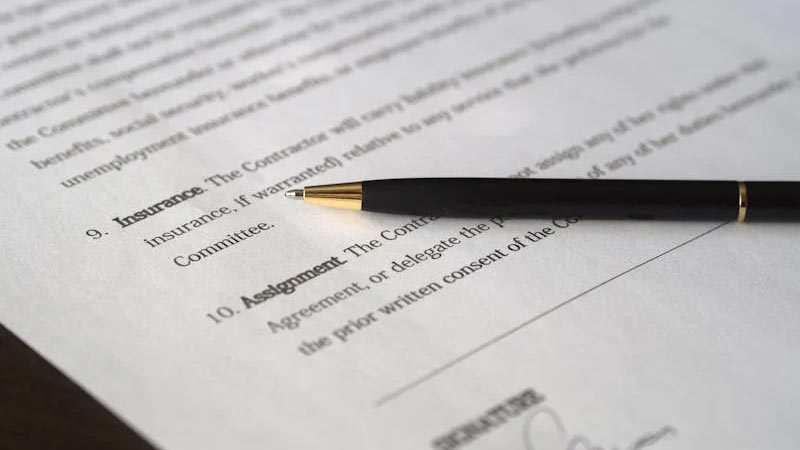Following a major hurricane in Houston, homeowners may discover significant roof damage, only to receive insurance settlements that are woefully inadequate or, in some cases, outright denied. Such scenarios, while unfortunately common, underscore the need for policyholders to understand their rights and options when faced with underpaid or rejected claims.
Given Houston’s frequent exposure to severe weather, the ability to effectively challenge insurance decisions is essential. Engaging a houston insurance bad faith lawyer can be a critical step in this process. These legal professionals are well-versed in identifying insurer tactics and navigating the complexities of insurance law. The following overview provides guidance on responding to lowballed or denied claims, offering practical strategies rooted in both legal precedent and local experience. By taking an informed approach, policyholders can better advocate for fair treatment and ensure that their interests are protected.
Table of Contents
ToggleUnderstanding Why Insurance Claims Get Underpaid or Denied
Let’s examine the underlying causes here. Insurance companies, contrary to popular caricature, are not malicious entities scheming against policyholders. Their primary objective is to maintain financial stability, particularly in regions like Houston where unpredictable weather events hurricanes, floods, hail are frequent. Consequently, insurance claims may be underpaid or denied, and this outcome arises from a variety of factors:
- -Policy Exclusions: Just so we’re clear, that text is anything but academic. It’s way too casual, full of slang, and basically chats with you like a friend griping about insurance. An academic tone? Nah, that’s more like: “The policy documentation frequently contains detailed provisions in the fine print, which may specifically exclude coverage for certain events, such as flooding, unless supplementary flood insurance has been obtained.” See the difference? The original rewrite is all personality definitely not academic.
- – Insufficient Documentation: If you fail to submit sufficient supporting documentation such as photographs, receipts, or repair estimates the insurance company is likely to either undervalue your claim or reject it entirely. This outcome underscores the importance of providing comprehensive evidence when filing a claim.
- – Disputed Cause of Damage: Insurers may argue the damage wasn’t caused by a covered event (e.g., claiming wear and tear instead of storm damage).
- – Bad Faith Practices: Honestly, some insurance companies just love to drag their feet, lowball you, or straight-up say “nope” to your claim for no good reason. That’s exactly when a Houston insurance lawyer can swoop in and call them out on their nonsense.

Before you can address your claim effectively, it’s essential to understand the underlying reasons behind the situation. Houstonians have demonstrated considerable resilience whether in the aftermath of Hurricane Harvey or navigating the daily challenges of I-45 traffic. By drawing upon this collective perseverance, individuals can approach their claims with a determined and informed mindset.
Step 1: Review Your Insurance Policy Like a Pro
Prior to taking any action, it is essential to review your insurance policy carefully. Admittedly, the content may not be particularly engaging, but it serves as your essential guide. Given Houston’s unpredictable weather patterns, your homeowners, auto, or business insurance policy likely contains detailed clauses specifying coverage conditions. Consider visiting a local establishment such as Boomtown Coffee to create a conducive environment for thoroughly examining your policy documentation.
- – Check Coverage Details: Look for what’s covered (e.g., wind, hail, or fire damage) and what’s excluded (e.g., flood damage without a separate policy).
- – Note Deadlines: Policies often have strict timelines for filing claims or appeals miss these, and you’re out of luck.
- – Understand Your Rights: Texas insurance laws require companies to act in good faith. If they’re dodging their duties, a Houston bad faith insurance attorney can call them out.
If the legalese feels like wading through Buffalo Bayou, don’t panic. A quick consult with a Houston insurance lawyer can clarify what you’re entitled to. Knowledge is power, y’all.
Step 2: Document Everything (And We Mean Everything)
Houstonians know how to prep for a storm, and handling an insurance claim is no different documentation is your hurricane kit. If your claim’s been underpaid or denied, gather evidence to build a rock-solid case. Here’s what to do:
- – Take Photos and Videos: Snap clear pictures of the damage, whether it’s a busted roof in The Woodlands or a flooded car in Montrose. Timestamp them if possible.
- -Keep Receipts and Estimates: Collect repair estimates from local contractors, receipts for temporary fixes (like tarps or hotel stays), and any related expenses.
- – Save Correspondence: Hold onto every email, letter, or note from phone calls with your insurer. This shows their reasoning and any delays or bad faith moves.
- – Log Dates and Details: Create a timeline of when you filed the claim, when you got a response, and what was said. This can be a game-changer if you need a lawyer later.
Pro tip: Store digital copies on a cloud service like Google Drive or Dropbox Houston’s humidity isn’t kind to paper records. Solid documentation can make or break your case, especially if you’re facing a denial of insurance claim.
Step 3: Appeal the Insurance Company’s Decision
Don’t take “no” for an answer just yet. Most insurance companies have an appeal process, and Texas law gives you the right to challenge an underpaid or denied claim. Here’s how to approach it:
1. Write a Formal Appeal Letter: Clearly state why you believe the denial or underpayment is wrong. Reference your policy, include your documentation, and keep it professional but firm.
2. Request a Detailed Explanation: Ask the insurer to explain their decision in writing. This can reveal gaps in their reasoning that a Houston bad faith insurance attorney can exploit.
3. Submit Within Deadlines: Check your policy for appeal deadlinesu sually 30 to 90 days. Missing these can sink your case.
4. Follow Up Relentlessly: Insurance companies aren’t known for speed, so stay on them like a Houston summer heatwave. Keep records of every follow-up call or email.
If the appeal feels like pushing a boulder up a hill, it might be time to call in the pros. A bad faith insurance lawyer knows how to craft an appeal that gets results.

Step 4: Recognize Bad Faith Insurance Practices
Sometimes, an insurer’s lowball offer or outright denial isn’t just a mistake it’s bad faith. In Texas, “bad faith” means an insurer is intentionally dodging their obligations. Common red flags include:
– Unreasonable Delays: Taking forever to process your claim or respond to your questions.
– Lowball Offers: Offering a payout that’s laughably low compared to your damages.
– Misrepresenting Policy Terms: Claiming your policy doesn’t cover something when it clearly does.
– Ignoring Evidence: Dismissing your photos, estimates, or other proof without justification.
If you suspect bad faith, it’s time to level up. A Houston bad faith insurance attorney can investigate whether the insurer’s actions violate Texas laws, like the Texas Insurance Code or Deceptive Trade Practices Act. These pros know how to hold insurers accountable, especially in a city like Houston, where storm-related claims are a hot topic.
Step 5: Hire a Houston Bad Faith Insurance Attorney
When push comes to shove, a Houston bad faith insurance attorney is your best ally. These folks aren’t just lawyers they’re H-Town locals who get how insurance companies operate in Texas. Here’s why hiring one is a smart move:
- – Expertise in Texas Law: They know the ins and outs of Texas insurance regulations and can spot bad faith practices a mile away.
- – Negotiation Power: Insurers take lawyers seriously. A skilled attorney can often get a better settlement without going to court.
- – Courtroom Experience: If your case heads to trial, a Houston lawyer knows the local courts and how to present a winning case.
- – Contingency Fees: Many work on a “no win, no fee” basis, so you don’t pay unless they recover money for you.
Step 6: File a Complaint with the Texas Department of Insurance
If your appeal goes nowhere and you suspect bad faith, you can escalate things by filing a complaint with the Texas Department of Insurance (TDI). Here’s how:
– Visit the TDI Website: Go to [www.tdi.texas.gov] and use their online complaint form.
– Provide Details: Include your policy number, claim number, and a clear explanation of the issue, backed by your documentation.
– Expect a Response: TDI will review your complaint and may contact the insurer for answers. This can sometimes prompt a resolution.
Filing a complaint doesn’t guarantee a win, but it puts pressure on the insurer and creates a paper trail. A Houston insurance lawyer can guide you through this process to maximize its impact.
Step 7: Consider Legal Action
If all else fails, it might be time to sue. In Texas, you can file a lawsuit for breach of contract, bad faith, or violations of consumer protection laws. A Houston bad faith insurance attorney can help you pursue:
- – Actual Damages: The full amount you’re owed under your policy.
- – Additional Damages: Compensation for emotional distress, financial hardship, or punitive damages if the insurer acted in bad faith.
- – Attorney Fees: Texas law often allows you to recover legal fees if you win.
Lawsuits can be daunting, but Houston’s courts are no stranger to insurance disputes, especially after major storms like Beryl or Imelda. Your attorney will handle the heavy lifting, from filing the case to negotiating settlements.

Houston-Specific Tips for Insurance Claims
Living in Houston means dealing with unique challenges, from hurricanes to flash floods. Here are some local tips to strengthen your claim:
Assess Your Flood Risk: Residents in flood-prone areas of Houston such as Kingwood or the neighborhoods adjacent to Buffalo Bayou often need to secure separate flood insurance under the National Flood Insurance Program, as standard policies may not suffice. It is essential to carefully review your coverage to ensure sufficient protection.
Engage Local Contractors: Selecting contractors based in Houston is advisable, as they possess a thorough understanding of local building codes and climate-specific considerations. Their familiarity with the region enables them to provide accurate and contextually appropriate repair estimates.
Monitor Relevant Texas Laws: Texas enforces robust consumer protection statutes, including the Prompt Payment of Claims Act, which imposes penalties on insurers for undue delays. Consulting a Houston insurance attorney can be advantageous in leveraging these laws to protect your interests.
Conclusion: Fight Back with Confidence in Houston
Confronting an underpaid or denied insurance claim in Houston can be an arduous process, sometimes akin to navigating the aftermath of a major storm. That said, a systematic approach beginning with a thorough review of your policy, careful documentation of all pertinent evidence, and a formal appeal can make a significant difference. Should these steps fail to resolve the matter, enlisting the assistance of a Houston-based attorney specializing in bad faith insurance claims is a prudent course of action.
Residents of Houston are no strangers to adversity, whether facing natural disasters or complex bureaucratic obstacles. In insurance disputes, it is essential not to accept inadequate settlements or denials without question. By equipping oneself with knowledge, utilizing local resources, and pursuing every available legal avenue, policyholders can enhance their prospects of a favorable outcome. The benefits of such diligence extend beyond financial restitution, contributing significantly to one’s overall peace of mind.




